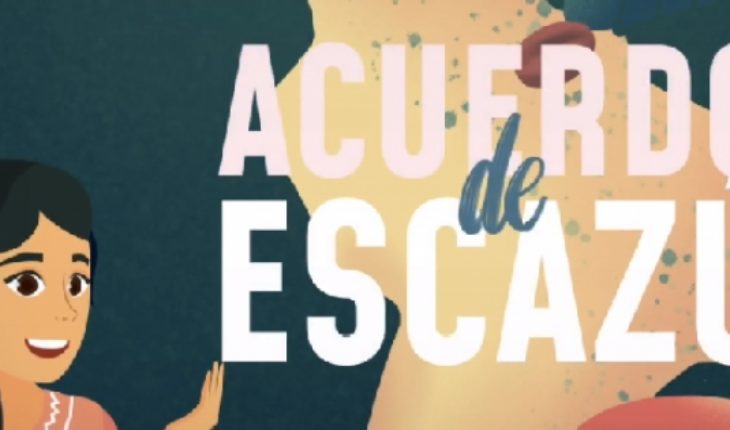this March 4 meets a year since it was adopted the “agreement is Cazue in San Jose, Costa Rica; a date that is of great importance to Latin America and the Caribbean environmental democracy, since after seven years of negotiations, the States of the region agreed to a treaty which sat the basis for better implementation of principle 10 of the Declaration of Rio, seeking to ensure the right to information, participation and access to justice in environmental matters. This milestone marked the beginning of a process that will give greater guarantees to the citizens to live in a healthy environment in the medium term.
Months after its adoption, on 27 September 2018 is opened for signature. We never imagined that Chile, under the second administration of President Piñera, subtract at the last minute to sign this agreement, since precisely under his first term on 2012 was born the idea of this regional instrument.
So far, the Escazú agreement has been signed by 16 countries, which have realized the political will to make progress on the necessary changes so that their States are proactive with their citizenship and, thereby, ensure the right to information, participation and environmental justice. Thus, the State undertakes to deliver clear, early, timely and understandable information to ensure public participation in decision-making on environmental matters, as well as to promote alternative dispute resolution mechanisms and establish support mechanisms for the most vulnerable, such as free legal and technical assistance.
But in addition, was accomplished in this agreement, specifically address the situation of environmental advocates, providing that it must ensure a safe environment, recognizing, protecting and promoting their rights; In addition to prevent, investigate and punish attacks, threats, or intimidation. These signs mean a great advance for the majority of the countries of the region, in which environmental activists constantly receive threats and die in “suspicious” circumstances (such as cases of Macarena Valdes and Alejandro Castro, in Chile and the) Samir Flores in Mexico, gunned down at the door of his house, among many others).
Sebastián Piñera’s Government has said, among other excuses for not signing, the country already has provisions on all matters dealing with the agreement of Escazu. But we know that Chile will require many changes in the management of the environmental policy and the environmental assessment which projects are subjected and, specifically in relation to the environmental advocates, do not have any legal framework that protects them.
On the other hand, there is an environmental institutionality, there is still an important space for improvement in these areas. Just see the confluence of events of the past few months to realize that citizenship feels quite muted. There is no mechanism that ensures access to justice in terms of defence by environmental cases: today in fact the poorest communities of the country must be financed with Bingo and completed the fees for lawyers and other professionals who are required to test the environmental damage of which they are victims.
For all of the above, during the negotiations, civil society as a whole held the leadership of Chile in the Escazu agreement; all with strong hope that our country had a huge opportunity to move towards greater environmental democracy, and thus have more tools to reduce environmental conflicts (which according to the Atlas of environmental justice 2018 we are leaders, in the) place 15).
One year of that happy day (adoption of Escazu), the feeling today is therefore completely opposite. Chile never attended the signing of the agreement calling on co-chair with Costa Rica to sign (giving passing the first embarrassment of several international policy we have experienced so far). Environmental emergencies have been, being the great example the situation experienced so far in the area of Concón and Quintero Puchuncavi, where residents will still be heard, despite the fact that more than 1600 people had to be treated in emergency rooms and It has failed to give polluting sources. Communities continue to sell bags of gender, numbers of raffles and so many other things, for example, to assess the level of damage that have salt lakes them in the North of Chile. Environmental advocates are just besieged by reporting the damage to the planet and their lives…
And in this scenario, in which we prepare for the next COP 25, as if our credibility would not be weak enough and people who inhabit our country do not feel is already enough passes to carry.
But this situation can still be reversed. As citizens that we aspire to a better society, we continue to hope that until the Presidents around the world stepped on the national territory, Chile sign Escazu and progress in its commitments to people, taking an important step towards the true environmental democracy.
The content poured into this op-ed is the sole responsibility of its author, and not refle JA necessarily the editorial line nor the counter position.





